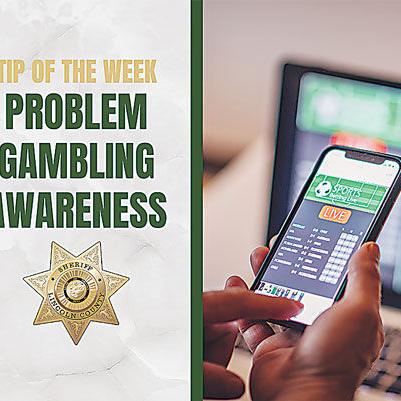
March is Problem Gambling Awareness Month (PGAM) and it’s a great reminder that activities, like gambling, can become a problem and impact our communities in different ways. Gambling can be an activity that is used for recreation and fun, but gambling interacts with our brains in the same way alcohol, drugs, and other “low-effort, high-reward” activities do. Because of this, gambling can become an addiction. Problem gambling is the continuation of gambling activities despite personal, social, or financial consequences.
Gambling problems are more than just a money issue. Each year, problem gambling effects our communities with social impacts such as gambling-related crime, which can include embezzling money or burglaries and thefts to help pay gambling debts. Aside from the financial and criminal consequences, problem gambling also negatively impacts relationships. For every one person with a gambling disorder, it is estimated that an additional eight to 10 others are affected. Workplaces may see a decrease in productivity, an increase in absences, and other issues if an employee has a gambling disorder. Family and friends often feel replaced by someone’s gambling and can bear the burden of picking up additional responsibilities — both financially, like paying bills on time, and socially, such as increased responsibilities with family, pets, or homecare.